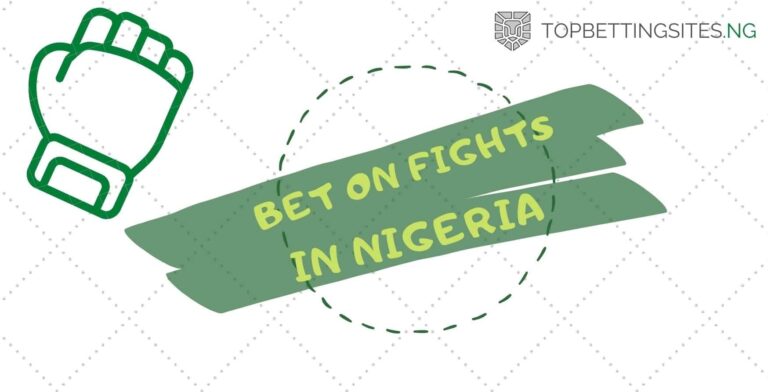In just a few short years, sports betting in the United States has gone from a legal gray area to a multi-billion-dollar industry embraced by millions of Americans. Since the Supreme Court struck down the Professional and Amateur Sports Protection Act (PASPA) in 2018, more than 30 states have legalized sports betting, unlocking new revenue streams, creating jobs, and transforming the way fans engage with their favorite teams.

From smartphones to retail sportsbooks in casinos and arenas, betting on everything from the NFL to esports has become an integral part of modern sports culture. As the legal landscape evolves, both seasoned bettors and curious newcomers are looking for guidance on how to navigate the growing number of platforms, promos, and regulations. Whether you’re placing your first wager or comparing odds like a pro, understanding the basics—and knowing where to start—is crucial.
Where to Start: Top Online Sportsbooks in the U.S.
If you’re looking to get started with sports betting, the first step is choosing a trusted online sportsbook in the U.S. With dozens of platforms available, it’s important to compare features like welcome bonuses, user experience, odds variety, and available states.
This comprehensive guide from Bettor In Green breaks down the leading options including FanDuel, DraftKings, BetMGM, Caesars, ESPN Bet, and more. You’ll find details on:
- State-by-state availability
- Types of welcome promos (like “Bet $5, Get $150” offers)
- Mobile app ratings
- Niche sports and live betting features
- Payment and withdrawal options
- Loyalty programs (if available)
Choosing the right sportsbook can make a big difference in your overall betting experience—whether it’s getting better odds, faster payouts, or support when you need it.
A Snapshot of the Current Legal Landscape
As of April 2025, 38 states and Washington D.C. have legalized some form of sports betting—online, retail, or both. Each state sets its own rules, which means the availability and format of betting can vary significantly.
Here’s a quick breakdown of how the U.S. betting map looks:
- Fully Legal (Online + Retail): New Jersey, Pennsylvania, Illinois, Ohio, Michigan, and others.
- Retail Only: States like Mississippi and Montana allow in-person wagering but not mobile.
- Pending Legislation or Ballot Initiatives: States like California and Alabama are actively debating legalization.
- Prohibited: A few holdouts like Utah and Hawaii maintain a full ban on all forms of gambling.
Each state’s regulatory framework affects everything from the types of bets you can place to which sportsbooks can operate. For example, in Illinois, daily fantasy sports are under new scrutiny, while in California, tribes and operators like FanDuel are exploring ways to build a collaborative model that respects tribal sovereignty and opens the door for legalization by 2026.
Spotlight on Leading Operators: DraftKings, FanDuel, Caesars, and More
With so many sportsbooks vying for attention, a few major players have risen to the top by offering a blend of cutting-edge technology, robust betting options, and attractive bonuses. Here’s a closer look at the biggest names in the U.S. sports betting market:
DraftKings Sportsbook
A former fantasy sports giant, DraftKings now operates in over 25 states. It offers frequent odds boosts, daily fantasy contests, and sleek app functionality. Its “Bet $5, Get $150” promotion is especially popular among new users.
FanDuel Sportsbook
Known for pioneering the same-game parlay format, FanDuel’s intuitive mobile app and wide betting markets have made it one of the top choices for casual and experienced bettors alike. Bonus: it offers live streaming for select events right in the app.
Caesars Sportsbook
With deep roots in the casino industry, Caesars leans into loyalty rewards, offering strong incentives through its Caesars Rewards program. It’s a favorite among bettors who want to tie their online play to physical perks.
BetMGM
This operator excels in live betting and futures markets. BetMGM often leads the way in posting odds and offers parlay insurance and “second chance bets” for first-time users.
ESPN Bet
A newer entrant backed by the power of ESPN and PENN Entertainment, ESPN Bet is building credibility quickly with aggressive bonuses and deep integration into ESPN fantasy products.
Fanatics Sportsbook
Leveraging its brand in sports merchandise, Fanatics offers innovative cross-promotions like “FanCash” and rewards tied to its retail ecosystem. It’s mobile-only for now but gaining ground quickly.
Each platform has strengths that appeal to different types of players—from fans who love fantasy tie-ins to those chasing the best odds or high-end VIP perks.
State-by-State: Key Developments in 2025
The sports betting map is still shifting. While many states have already legalized the practice, 2025 has introduced fresh momentum and new complications in key regions.
Illinois: DFS in the Crosshairs Again
PrizePicks, a major daily fantasy operator, received a cease-and-desist from the Illinois Gaming Board ahead of the Super Bowl, with regulators arguing that its contests cross into illegal gambling. Unlike DraftKings and FanDuel—which now hold sports betting licenses—PrizePicks operates outside formal gambling law, and new legislation may soon tax and regulate all DFS platforms at a 15% rate.
Alabama: A New Plan for a Gambling Framework
A major bill proposed in April 2025 introduces a state lottery, legal sports betting, and electronic gaming at six locations. The package also includes a compact with the Poarch Band of Creek Indians to operate four full-scale casinos. With a proposed 24% tax on sports wagering revenue, the bill aims to regulate widespread underground activity and fill budget gaps as federal funds decline.
California: Repairing Tribal Relations for Future Launch
After failed ballot measures in 2022, FanDuel and DraftKings are now taking a more respectful approach by directly engaging with Native tribes. A proposal to create a “mega tribe” in partnership with top operators could bring sports betting to the ballot by 2026, with potential launch as early as 2027. The emphasis is now on tribal sovereignty, cultural understanding, and shared economic benefit.
Together, these states highlight how the legal status of sports betting is far from settled—and how cooperation, regulation, and politics continue to shape the future.
Bonuses, Promos, and Player Perks Explained
One of the biggest draws to online sportsbooks is the range of promotions that help you stretch your bankroll or ease your way into betting.
Here are the main types of promos you’ll find across top sportsbooks:
Bonus Bets
Often awarded upon signup or after placing a qualifying wager, bonus bets let you place risk-free bets using site credit. Just note that only the winnings, not the stake, are returned if the bet hits.
Deposit Match Bonuses
Operators like ESPN Bet may offer a 100% or even 200% match on your first deposit. This gives players significantly more credit to bet with—but always check if there are wagering requirements before withdrawing.
Second Chance or “No Sweat” Bets
If your first wager loses, these offers refund you in the form of site credit. It’s a strong incentive for new bettors who want to ease into the action without immediately risking their cash.
Odds Boosts and Profit Boosts
These increase the payout potential on select bets or parlays. DraftKings, Caesars, and FanDuel frequently use them to highlight daily events and drive volume.
Bet & Get Offers
These deals give you a chunk of bonus bets simply for placing a small real-money wager. For example, “Bet $5, Get $150” in bonus credits is a common offer from multiple operators.
Understanding how to activate and use these bonuses effectively is key to getting maximum value from your sportsbook experience. It’s also worth noting that legit sportsbooks are moving away from misleading terms like “risk-free bets,” and many states have outright banned that phrasing.
Challenges in Regulation: Gray Areas and Unlicensed Platforms
While legalized sports betting is thriving in many states, significant regulatory challenges remain. The rapid pace of legalization has left gaps—especially in areas like daily fantasy sports (DFS), tribal gaming negotiations, and unregulated offshore operators.
The DFS Debate
States like Illinois are renewing their scrutiny of DFS platforms like PrizePicks, which offer contests that closely resemble player prop bets. While DraftKings and FanDuel have shifted toward regulated sportsbook models, PrizePicks and others operate in a legal gray area. Regulators argue that these contests are essentially “against-the-house” wagers, and several states may introduce new rules to bring them under gambling law.
The Problem with Offshore Sites
Despite being illegal, offshore sportsbooks still attract American players due to enticing odds or lenient signup processes. But these platforms operate outside of U.S. jurisdiction, meaning:
- There are no consumer protections if a dispute arises.
- Payouts can be delayed—or denied entirely.
- Your personal and financial information is at risk.
Stick with licensed sportsbooks regulated by your state’s gaming authority. A quick visit to your state’s gambling commission website can confirm which platforms are authorized to operate.
State-by-State Complexities
No two states are alike. While New Jersey and Pennsylvania offer robust, competitive markets, others impose high taxes or limit the number of operators. This patchwork approach creates an inconsistent user experience and hinders innovation across state lines.
Responsible Gambling and Regulatory Oversight
As the industry grows, so does the importance of responsible gambling. Legitimate sportsbooks now go beyond flashy bonuses and betting options by offering tools to help players stay in control.
Built-in Tools
Most platforms now include:
- Deposit limits (daily, weekly, monthly)
- Time-outs or cooling-off periods
- Self-exclusion programs (voluntary bans from all licensed sportsbooks)
These tools help mitigate risks, especially for younger bettors or those prone to compulsive behavior.
Support Networks
Online sportsbooks must display contact info for support resources like:
- 1-800-GAMBLER
- National Council on Problem Gambling (NCPG)
- State-specific helplines and counseling services
Transparent Advertising & Age Limits
Regulators have cracked down on predatory advertising, particularly targeting underage individuals. For example, the use of terms like “risk-free bets” is now banned in several states due to its misleading nature.
Oversight Agencies
Every licensed sportsbook is subject to review by a state gaming commission. These bodies ensure compliance with:
- Security standards
- Fair odds calculations
- Timely payouts
- Reporting requirements
You can often access data on win/loss ratios and operator performance directly from your state’s gaming board—providing transparency and accountability for players.
The Road Ahead: What’s Next for Sports Betting in the U.S.?
With 2025 already shaping up to be a landmark year for sports betting legislation, several trends and developments are worth watching:
Continued Legal Expansion
States like California, Texas, and Georgia represent untapped potential. If California alone were to legalize mobile betting, it could generate $3–4 billion in annual revenue. Though any progress depends on tribal partnerships and voter referendums, the groundwork is being laid.
Tribal and Commercial Cooperation
The shift in tone from operators like FanDuel and DraftKings—especially in California—is a major step. Instead of bypassing tribes, they’re now engaging in collaborative models that emphasize sovereignty and shared wealth, signaling a new era of diplomacy in gambling policy.
Tech and App Innovation
Expect to see deeper integrations with live sports, wearable tech, and even AR/VR experiences. Some sportsbooks already offer in-app streaming of NFL games or curated bet suggestions based on live stats.
Higher Stakes on Consumer Protections
As more Americans join the betting ecosystem, expect tighter oversight of marketing practices, clearer bonus terms, and new rules surrounding data privacy and payment security.
Longer-Term Federal Interest?
While sports betting is largely a state issue, the growing national footprint may eventually prompt federal guidelines on advertising standards, data sharing, or taxation.



